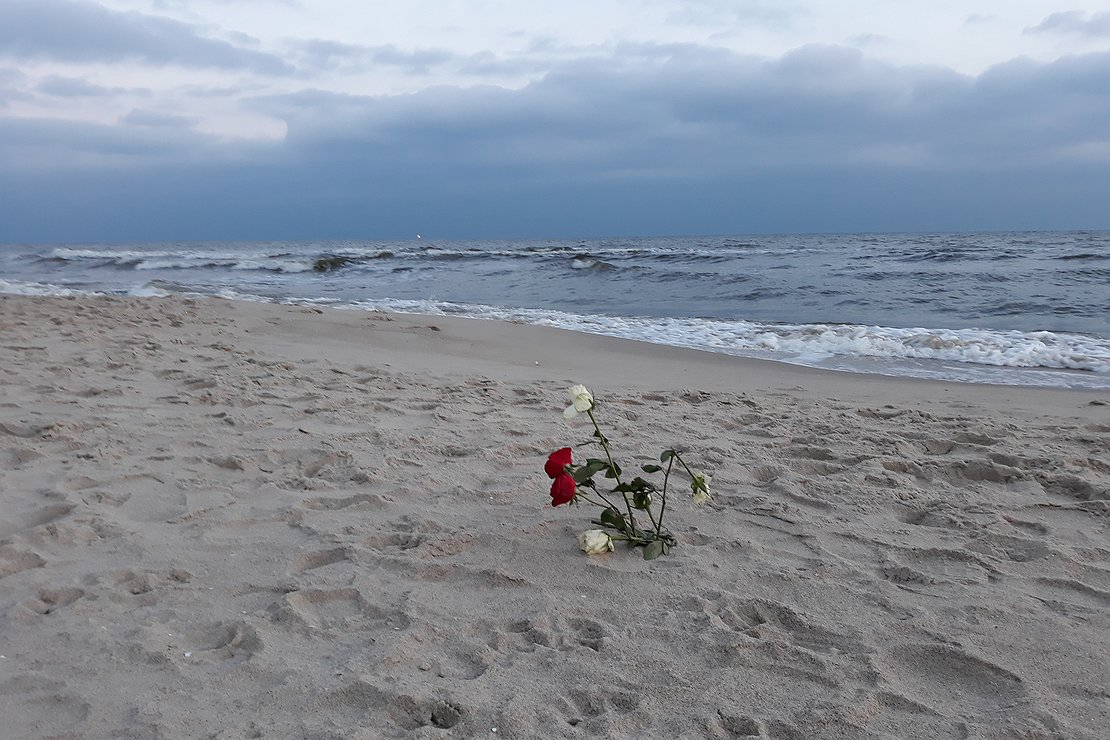
Freiburg and the dimension of sexual violence:Defenseless Prey
It was only after a two-week delay that the rape of an 18-year-old girl in Freiburg im Breisgau became known, although – or rather: because – the crime is of particularly heinous quality and it is not an individual assault resulting from a specific situation, but a collective crime with anti-German connotations. There is a 21-year-old principal offender from Syria and seven, including a German, possibly even 14 accomplices, who spent four hours abusing the young woman. They were apparently known to be highly criminal and some were subject to deportation. Nobody knows how many incidents of this kind have occurred. Politics, justice and the state as a whole are in failure mode. Together with the media, they form a dysfunctional system that peddles its citizens as defenseless prey.
It’s no better in the so-called civil society. The feminists and MeToo activists who hyperventilate because of inadequate women's rights in India or Iran, or because of a boss's sexist glances, remain silent. Only 500 participants gathered for the AfD (Alternative für Deutschland) protest rally in Freiburg, four times as many for the counter-demonstrations. The majority demonstrated “against sexualised violence against women and against the instrumentalization of the victim.”
The antagonism they claimed is wrong. An ‘instrumentalization’ would exist if the act were placed in an irrelevant context and used for selfish purposes. But it’s about expressing, and raising awareness of, the political preconditions and decisions that enable and facilitate such acts. However, the good people of Freiburg, and elsewhere, are merely inhibiting the societal process of gaining knowledge. Their ‘grief,’ their ‘horror,’ and their ‘compassion’ for the victim are impotent acknowledgements, because they have no consequences. In the eyes of the perpetrators these are further signs of weakness, which increase their contempt for the German society of defenseless prey.
Perpetrator presents himself as conqueror
A Facebook photo printed by the ‘Bild’ newspaper shows the main offender Majid H. as the undisputed centre of a group of about 20 young men of southern origin at a train station in Freiburg. They are bursting with strength and self-confidence, which manifests itself in an aggressive body language; some show the raised middle finger. An acquaintance commented: “Wanted: women with a German passport.” In another photo Majid H., who has lived in Germany for four years, poses with a machine gun. He wrote: “I am a Kurd and my heart is of iron. I come from the city of Qamishli.”
The impression is clear: this is not how those seeking protection present themselves, this is how conquerors who have discovered the field of biopolitics as a battlefield for themselves, on which they seize power, step by step. According to Giorgio Agamben and Michel Foucault, ‘biopower’ is expred through measures “in which power penetrates even the bodies of the subjects and their forms of life” (Agamben), whereby the measures “don’t aim at the individual but at the entire population” (Foucault), namely at the regulation of physical processes such as reproduction, birth and death. This also includes conditioning the psyche through external interventions. One of the most severe and effective interventions is sexual violence.
Around 1945, mass rapes took place in Germany. The Berlin diaries of Anonyma, Margret Boveri and Ruth Andreas-Friedrich present a vivid picture of this. The latter explained the ‘regimental’ rapes by Red Army soldiers with the “genus of natural men. (...) he who is instinctive also wants to possess instinctively. Flesh or soil. Soil or flesh. It’s all the same for the primitive. Victory is a physical process. Physically it is felt, physically it also worked off. It’s not beautiful, but understandable. (...) In other words: The Russian frenzy of victory manifests itself in the flesh. In the flesh of our women. In the flesh they take possession of the German soil piece by piece; in the flesh they procreate themselves night after night into it.”
The submission of the woman corresponds to the devaluation of the man
The physical submission of the woman corresponded to the devaluation of the man through the demonstration of his powerlessness. Woman and man suffered both their own humiliation and that of the other. The consequences of this intervention in the most intimate sphere resemble the effect of torture described by Jean Améry: they destroy interpersonal security and undermine basic trust. In retrospect, Margret Boveri wrote that “the tremendous traumatic experience” had “become a historical fact in its own right and had morphed into something exaggerated.”
A similarly blatant sense of power was demonstrated by the 31-year-old Ghanaian asylum seeker, who threatened a student couple, camping on the meadows of the river Sieg near Bonn, with a tree saw in April 2017 and demanded of the woman: “Come out bitch. I wanna fuck you.” During the rape, her partner phoned the overstretched police for help. Again – for other reasons – the state is unable to fulfil its protective function for its citizens. Whether and to what extent this is a matter of objectification and political-historical self-perpetuation of the mass trauma of 1945 is a separate issue.
The majority does not understand the situation
Of course, this development cannot be limited to Germany and seen as a one-way street. The modern mass democracy state has opened up spaces of freedom and security in which individuals can realize their right to life, health, happiness, satisfaction of needs and sexual laissez-faire. The prerogatives of the individual derived from, and defined by, a human rights universalism have long since outweighed the obligations towards the particular community and thus also the state.
Now comes the dialectical change of the state separated from the citizen and shot through with humanitarianism: under the emblem of universalism, it opens its borders to facilitate an ethnic-cultural transformation in which the universally liberated individuals suddenly see themselves at the mercy of archaic behaviour and foreign biopower. The weak reactions to the atrocities in Freiburg and elsewhere show that a majority neither understands their situation nor is able to come to political conclusions and decisions. What today is still a criminal exception could therefore soon be the rule.
Originally written for 'Junge Freiheit', where the article appeared under the title 'Wehrlose Beute', on 3rd November 2018.




